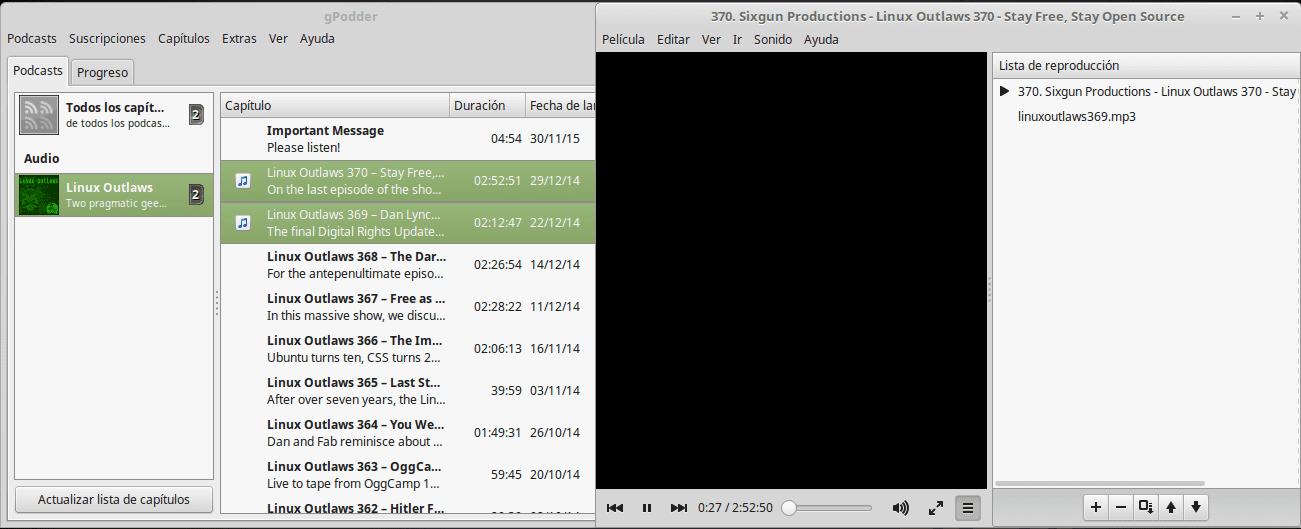

- #Gpodder dependencies install
- #Gpodder dependencies full
- #Gpodder dependencies download
- #Gpodder dependencies windows
To run pipdeptree and view a hierarchical printout of all the packages in your current project, enter:
#Gpodder dependencies install
To install the latest version of pipdeptree, enter: It can be used to display both packages that have been installed globally, as well as in a virtual environment. Use pipdeptree whenever you need help making the hierarchy of packages and dependencies in an environment more understandable. This can be useful when trying to visualize a dependency conflict, but pipdeptree itself does not provide for resolution of the conflict.ĭespite this limitation, pipdeptree is often better than using the pip freeze and pip list commands, which only display packages in a flat list without showing which packages are top level and which are dependencies. Pipdeptree is a command-line tool for displaying installed Python packages in a dependency tree. To clone Spack and use it to install a package in Linux:
#Gpodder dependencies download
If Git is not installed in your Linux platform, refer to this Quickread post that explains h ow to download Python packages using a Github repository in Linux. Clone Spack from Github and Install a Package in Linux Spack is available for Linux and macOS, but is primarily used on supercomputers where many users and application teams might share common installations of Python.

#Gpodder dependencies full
It can be used to manage dependencies, and will let you query the full dependency configuration of installed packages. Spack is a flexible package management tool designed to support multiple Python versions, configurations, platforms, and compilers.
#Gpodder dependencies windows
Note that pyenv is a Bash extension and will not work on Windows outside of the Windows subsystem for Linux.įor information about the use of Pyenv, refer to this Quickread post. Pyenv is a Python version manager that lets you change the global Python version, install multiple Python versions, set directory or project specific Python versions, and create and manage virtual environments. Note that with the release of Python 3.8, Virtualenv has been deprecated.įor more information about the use of Virtualenv and Venv, refer to this Quickread post.


 0 kommentar(er)
0 kommentar(er)
